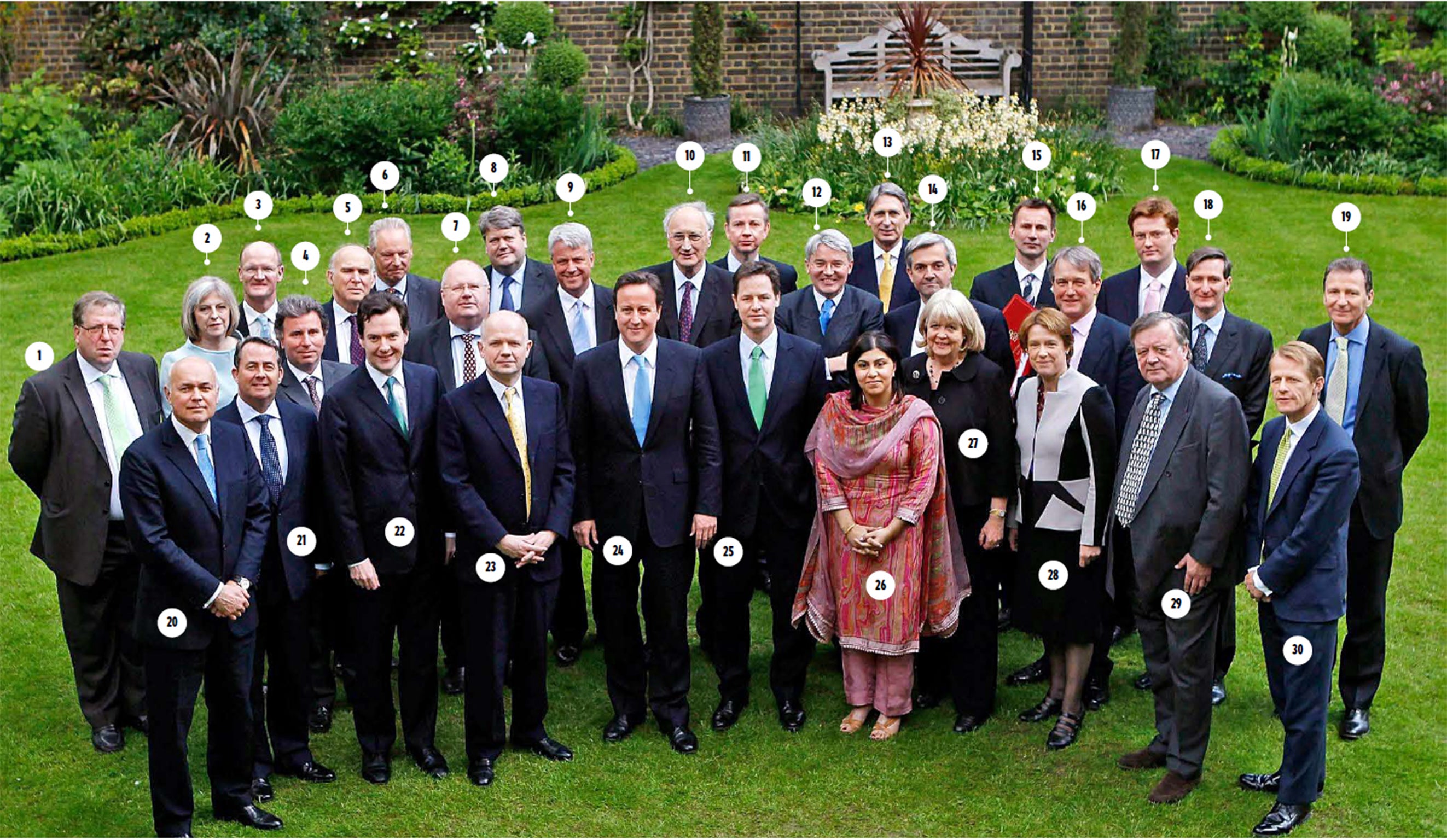
Your support helps us to tell the story
From reproductive rights to climate change to Big Tech, The Independent is on the ground when the story is developing. Whether it's investigating the financials of Elon Musk's pro-Trump PAC or producing our latest documentary, 'The A Word', which shines a light on the American women fighting for reproductive rights, we know how important it is to parse out the facts from the messaging.
At such a critical moment in US history, we need reporters on the ground. Your donation allows us to keep sending journalists to speak to both sides of the story.
The Independent is trusted by Americans across the entire political spectrum. And unlike many other quality news outlets, we choose not to lock Americans out of our reporting and analysis with paywalls. We believe quality journalism should be available to everyone, paid for by those who can afford it.
Your support makes all the difference.1. Chief Whip
Patrick McLoughlin (2010-12); Andrew Mitchell (Sept-Oct 2012); Sir George Young (2012-14); Michael Gove (2014-)
The job usually involves imposing disciple, but Gove’s job will include selling the Tories to the voters.
2. Home Secretary
Theresa May (2010-)
Tough, having survived an open feud with Gove. Still a contender for the leadership.
3. Universities and Science Minister
David Willetts (2010-14); Greg Clark (2014-)
Academics liked Willetts though the reforms he oversaw were unpopular. A hard act to follow.
4. Cabinet Office Minister, for Policy
Oliver Letwin (2010-)
A job created for the cerebral Mr Letwin.
5. Business Secretary
Vince Cable (2010-)
Much criticised over the cut-price sale of Royal Mail – but it is for Nick Clegg to decide whether to sack him.
6. Paymaster General
Francis Maude (2010-)
Maude’s main task has been civil service reform. Many civil servants would like to see the back of him, but he is still there.
7. Secretary of State, Communities and Local Government
Eric Pickles (2010-)
Pickles has upset a lot of councillors and it was thought he might be sacked, but he remains.
8. Leader of the Lords
Lord Strathclyde (2010-13); Lord Hill (2013-14); Baroness Stowell (2014-)
Baroness Stowell is not a full member of Cabinet, unlike her predecessors.
9. Health Secretary
Andrew Lansley (2010-12); Jeremy Hunt (2012-)
After Lansley’s frenetic and ill-judged NHS reforms, Hunt’s job is to keep the NHS out of the news.
10. Leader of the Commons
Sir George Young (2010-12); Andrew Lansley (2012-14); William Hague (2014-)
Organising Commons business will not take much time – Hague’s real job will be promoting the Tories.
11. Education Secretary
Michael Gove (2010-14); Nicky Morgan (2014-)
Morgan’s task will be to keep education out of the news in order not to put teachers off voting Conservative.
12. International Development Secretary
Andrew Mitchell (2010-2012); Justine Greening (2012-)
Cameron would not like you to think the Conservatives do not care about the Third World, so Greening is left to dispense a big budget.
13. Transport Secretary
Philip Hammond (2010-12); Patrick McLoughlin (2012-)
HS2 was sorted before McLoughlin arrived, and Heathrow expansion is being left until after the election.
14. Energy Secretary
Chris Huhne (2010-12); Ed Davey (2012-)
A good job for a Liberal Democrat with an ambition to replace Nick Clegg – provided he drives with care.
15. Culture Secretary
Jeremy Hunt (2010-12); Maria Miller (2012-14); Sajid Javid (2014-)
A small department but with hugely sensitive issues like press regulation. Javid has so far avoided controversy
16. Northern Ireland Secretary
Owen Paterson (2010-12); Theresa Villiers (2012-)
Northern Ireland’s home-grown politicians decide how difficult this job is – for now it is relatively problem free.
17. Scottish Secretary
Danny Alexander (2010); Michael Moore (2010-13); Alistair Carmichael (2013-)
His main – and only –task is to keep Scotland in the UK.
18. Attorney General
Dominic Grieve (2010-14); Jeremy Wright (2014-)
If the intention is to renounce European Human Rights legislation, sacking Grieve was a necessary first step.
19. Cabinet Secretary
Sir Gus O’Donnell (2005-11) Sir Jeremy Haywood (2012-)
The Cabinet Secretary makes sure the Whitehall machine carries on as normal.
20. Work and Pensions Secretary
Iain Duncan Smith (2010-)
Still there so he can clear up his own mess.
21. Defence Secretary
Liam Fox (2010-11); Philip Hammond (2011-14); Michael Fallon (2014-)
A well-timed announcement of extra money for defence should make Fallon’s job easy.
22. Chancellor of the Exchequer
George Osborne (2010-)
With the economy beginning to improve, Osborne still has his eyes on being the next Conservative Prime Minister
23. Foreign Secretary
William Hague (2010-14); Philip Hammond (2014-)
Hague’s successor will have to knuckle down to sorting relations with Europe.
24. Prime Minister
David Cameron
25. Deputy Prime Minister
Nick Clegg
26. Conservative Chairman
Baroness Warsi (2010-12); Grant Shapps (2012-)
Shapps has belied predictions that he would be sacked, but with Hague and Gove now available, he will not be in sole charge of the campaign.
27. Welsh Secretary
Cheryl Gillan (2010-12); David Jones (2012-14); Stephen Crabbe (2014-)
A non-job since devolution.
28. Environment Secretary
Caroline Spelman (2010-12); Owen Paterson (2011-14); Liz Truss (2014-)
Both predecessors were sacked. She must get flood defences in place and think twice about the badger cull.
29. Justice Secretary
Kenneth Clarke (2010- 12); Chris Grayling (2012-)
Grayling is in conflict with judges over legal aid and with Europe over human rights law, which pleases the right.
30. Chief Secretary to the Treasury
David Laws (May 2010); Danny Alexander (2010-)
Until recently, Alexander’s main task was smoothing over relations between Coalition partners.
Join our commenting forum
Join thought-provoking conversations, follow other Independent readers and see their replies
Comments